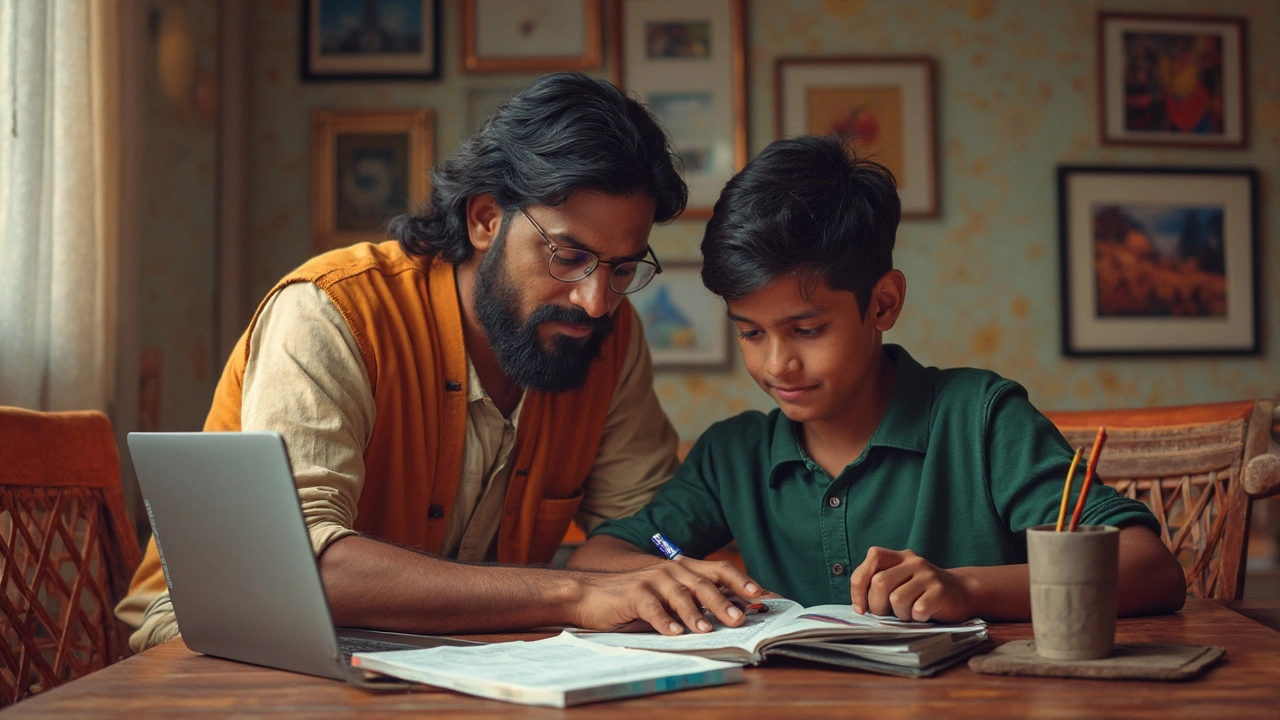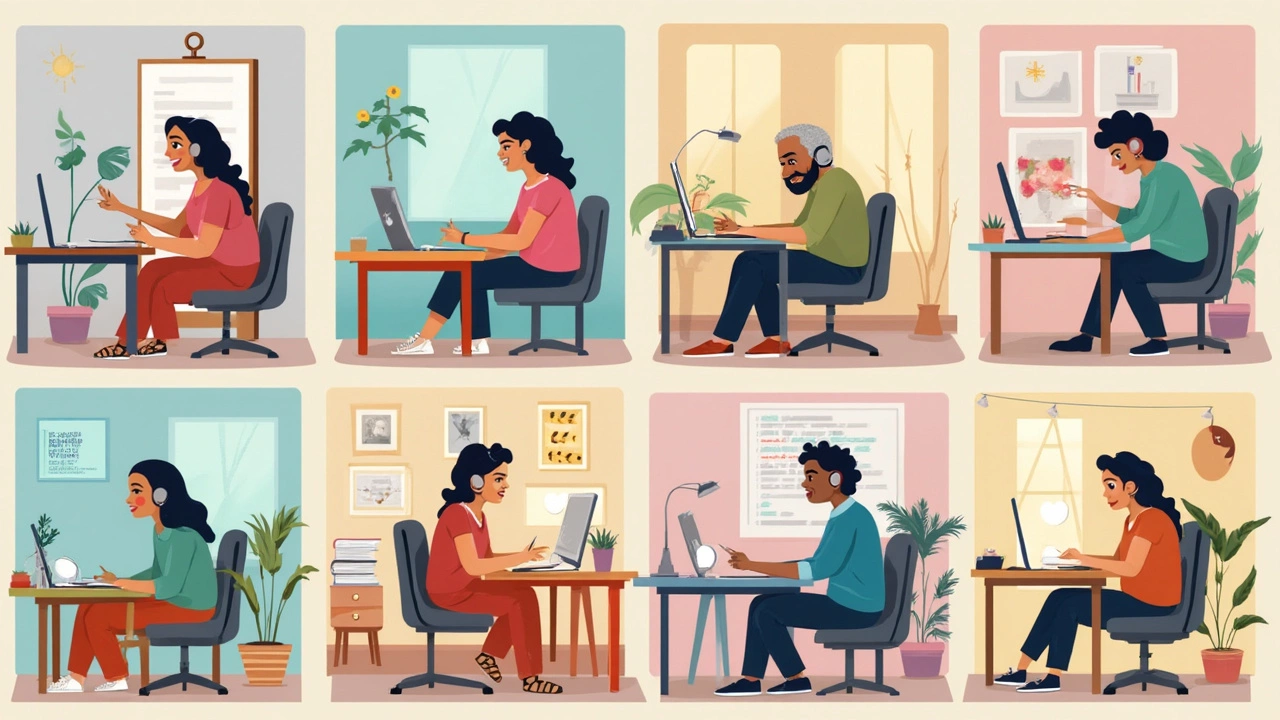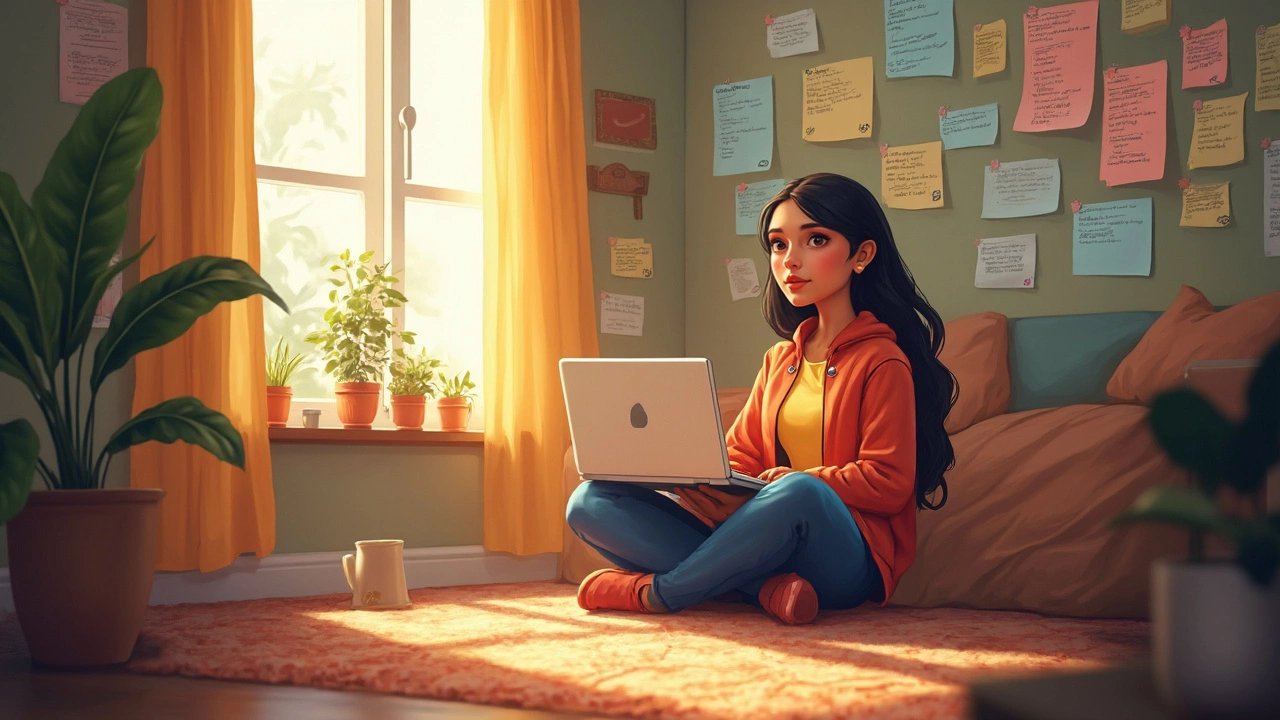If you’ve ever scrolled past coding bootcamp ads and wondered if it’s even possible to learn programming at home, you’re not alone. The good news? You don’t need a fancy classroom or quiet library to get rolling. Plenty of self-taught programmers have landed real jobs or launched side projects from their kitchen tables.
The tricky part isn’t finding information—it’s staying on track when you’re surrounded by distractions (and maybe a needy cat). It comes down to picking the right approach for you. Some folks thrive with strict schedules and detailed plans, while others learn best by jumping into projects and figuring things out along the way.
So, what actually works? Instead of downloading every free textbook ever written, start with small, clear goals. Want to build a website or automate a boring task? Zero in on the exact skills you’ll need for that first project. Fast wins keep you hooked—and stop you from burning out in tutorial hell.
- So, Can You Really Learn Programming at Home?
- How To Get Started With Zero Experience
- Online Tools and Resources That Actually Help
- Handling Frustration and Staying Motivated
- Building Real Skills: What Comes Next?
So, Can You Really Learn Programming at Home?
This is one of the most common questions people ask, and the answer is a big yes. There’s nothing standing in your way except maybe your own doubts. You don't need a tech degree, a stack of physical books, or expensive software to get started. Stanford and MIT have both put some of their intro computer science courses for free online, if that tells you anything. The internet is packed with resources—lots of them free—that can take you from total beginner to building real stuff.
Some of the world’s best-known businesses started literally in bedrooms and garages. Both Bill Gates and Mark Zuckerberg started their programming journeys at home before starting anything big. These are outliers for sure, but their stories show that your home setup isn’t a barrier to learning real skills.
Now, don't expect it to be a cakewalk. Learning to code at home means you’re your own teacher, classmate, and boss. No one checks your homework or reminds you about deadlines. You have to own your schedule and push through confusion—especially when docs or forums make zero sense at first.
Research from Stack Overflow’s annual developer survey backs this up: over 70% of professional developers say they are at least partly self-taught. That means most working coders picked up a bunch of knowledge outside formal classrooms.
Here’s what really helps if you want to learn programming at home:
- Break big goals into tiny, clear steps—think “build a single-page website” instead of “learn JavaScript.”
- Set up a regular time to code, even 20 minutes a day, and stick to it as much as possible. Small, steady progress adds up faster than marathons once in a while.
- Don’t try to learn everything at once. Go deep, not wide. Pick one language or problem and focus, then move to the next thing.
- Find a buddy or online group so you don’t get stuck alone. Reddit’s r/learnprogramming and Discord channels are full of people at every skill level.
- Actually build things, even rough or silly projects. Applying what you learn in a real context makes it stick.
No magic tricks here—it comes down to structure, curiosity, and not being afraid to mess up. If you’re willing to put in the time, home is just as good a place to start coding as anywhere else.
How To Get Started With Zero Experience
Starting from scratch might feel overwhelming, but you don’t need a tech background to jump in. Plenty of folks with zero coding know-how picked up the basics from home. Actually, a 2023 Stack Overflow survey showed that almost 70% of developers said they taught themselves at least part of what they know.
Here’s how you can get rolling if you’ve never written a single line of code before:
- Pick a language that matches your goals. If you want to make websites, start with HTML, CSS, and JavaScript. For apps or automation, Python is super beginner-friendly.
- Find a free, interactive resource to learn the basics. Sites like freeCodeCamp, Codecademy, and Khan Academy let you code in your browser. No setup headaches.
- Make a routine. Even 20 minutes a day adds up. Pick a regular time you can actually stick to, like right after breakfast or before bed.
- Don’t just watch; type along. Clicking through videos feels easy, but you learn way more by trying it yourself.
- Get comfortable searching for answers. Programmers Google stuff constantly. Stack Overflow is your best friend, not a last resort.
Just so you get the lay of the land, here's some data on resources and how often users stick with them:
| Resource | Monthly Users (Millions) | Completion Rate (%) |
|---|---|---|
| freeCodeCamp | 8.0 | 22 |
| Codecademy | 5.5 | 18 |
| Khan Academy (Computer Science) | 2.1 | 25 |
Most beginners drop off after the first week, so consistency beats cramming for long stretches. And don’t sweat mistakes—they mean you’re actually learning.
The biggest secret? Stick with your routine and focus on small wins. You don’t need to build the next Facebook; just get code on the screen. That momentum is what will make you a real self-taught programmer sooner than you think.

Online Tools and Resources That Actually Help
If you want to learn programming at home, your toolkit needs the right stuff—otherwise, it’s way too easy to get lost in endless tutorials.
Not all resources are equal, so here’s what actually helps beginners make progress without wasting months:
- Interactive coding sites: FreeCodeCamp, Codecademy, and Scrimba are great starting points. Instead of just reading, you code right in the browser—instant feedback is a game changer.
- Video courses: Platforms like Udemy and Coursera often run $10 sales. Courses by Colt Steele or Angela Yu stay beginner-friendly and walk you through real projects. YouTube channels like Programming with Mosh are solid too.
- Practice platforms: LeetCode, HackerRank, and Codewars throw coding challenges your way. These are good to build problem-solving skills and prep for tech interviews down the line.
- Community sites: Stack Overflow or Reddit’s r/learnprogramming sub are lifesavers when you hit a wall. It’s normal—not a sign to quit!
- Project starters: GitHub is packed with starter projects. Forking one for yourself means less setup, more hands-on learning.
Having trouble with motivation? Some folks join online study groups, like the 100DaysOfCode challenge on Twitter. Others use tools like Notion or Todoist to stay organized and track progress.
Wondering what’s popular right now? Check out this quick snapshot on tool usage from this year’s Stack Overflow Developer Survey:
| Tool/Platform | Percent of Respondents Using |
|---|---|
| GitHub | 95% |
| Stack Overflow | 85% |
| FreeCodeCamp | 48% |
| Codecademy | 33% |
| LeetCode | 55% |
Tons of programmers get their first projects off the ground using these same tools. The best part? Almost all are free or low-cost, so picking just a few and sticking with them beats signing up everywhere and getting nowhere.
Handling Frustration and Staying Motivated
If you’re learning programming at home, expect to hit some bumps. Even experienced coders get stuck and feel like giving up sometimes. In fact, Stack Overflow’s 2023 survey found that over 60% of new coders struggle with self-doubt or get discouraged early on. The trick isn’t avoiding frustration—it’s knowing how to push through it.
Don’t try to power through endless hours. Coding marathons usually backfire and leave you burned out. It’s way smarter to break things up. Aim for short, focused sessions—think 30 to 60 minutes—then take a breather. Research from the University of Illinois says your brain starts losing focus after about 52 minutes, so don’t feel guilty about those breaks (grab a coffee, it helps!).
Another thing: keep track of small wins. Finished a tricky lesson? Got a program to actually run? Mark it down somewhere—seriously. Some coders use a journal or sticky notes, others log milestones in a notepad app. Over time, you’ll see a pattern: you’re moving forward, even if it doesn’t feel like it on those rough days. This boosts your mood way more than you’d expect.
- Join a community. It could be a subreddit, Discord group, or a local meetup (some meetups are virtual now). When you hit a coding wall, sometimes just talking about it helps, and people online love sharing advice—Stack Overflow is proof of that.
- Ask for help sooner rather than later. Don’t sit stuck for hours on a single bug. Someone out there has already solved it and is probably happy to explain it in plain English.
- Don’t compare your pace to others. Social media makes everyone look like a coding prodigy, but most people are struggling with the same stuff as you behind the scenes.
- Reward yourself. Finished a tough module or finally understood basic loops? Treat yourself—whatever makes you happy. Small rewards keep you moving forward.
The biggest thing to remember: learning to code isn’t about being perfect. It’s about building habits and not giving up when things get annoying. The folks who stick with it are the ones who eventually master learn programming at home. Keep it realistic, keep it human, and keep going.

Building Real Skills: What Comes Next?
So you’ve made it through your first few projects and you know how to solve basic problems. Now it’s time to actually grow your learn programming skills and turn your at-home tinkering into something bigger.
First, start working on real projects that can live outside the classroom or a tutorial. These don’t have to be huge—a simple budget tracker, a personal website, or a script that fixes a small annoyance in your life totally counts. When you build something useful, you get feedback from the real world, not just from code editors.
It also pays to get your work seen by others. Create a GitHub account and upload your code. Open-source contributions give you a taste of what it’s like to work with other people, and a public profile helps if you’re planning to job hunt. Receiving feedback may sting a little at first, but it’s a shortcut to improvement.
Don’t skip learning to read other people’s code. Real life isn’t just typing from an empty file—most programming jobs involve understanding projects started by someone else. When you pick apart open-source projects, you learn patterns, best practices, and sometimes find clever shortcuts you wouldn’t discover alone.
- Join online forums or coding communities (like Stack Overflow or Discord channels). You’ll find mentors, get problem-solving tips, and maybe even spot collaborations.
- Practice with online coding challenges—sites like LeetCode, Codewars, and HackerRank are full of tasks that make your brain sweat in a good way.
- Take breaks to reflect on what you’ve learned. It sounds simple, but even pros will tell you that stepping back helps new concepts stick.
If you’re curious about the most common skills employers look for in junior programmers, check out this snapshot from a 2024 Stack Overflow Developer Survey:
| Skill | Percentage of Employers Wanting It |
|---|---|
| Problem-Solving | 75% |
| Git Version Control | 67% |
| Team Collaboration | 60% |
| Writing Clean Code | 55% |
| Understanding Existing Codebases | 52% |
One last thing—keep a portfolio of what you build. Even if you’re just applying for internships, a few solid projects look way better than a pageful of certificates. In tech, what you do tops what you “learned.” Next step? Pick your favorite idea, and just start coding it—even if it feels a bit uncomfortable. That’s how real growth happens.





